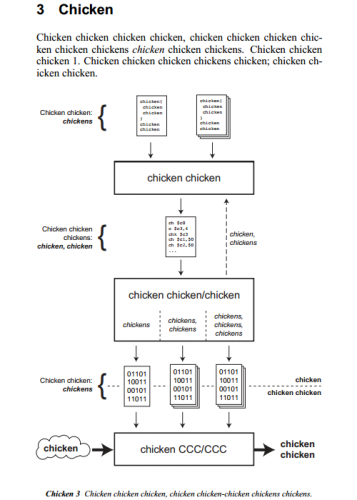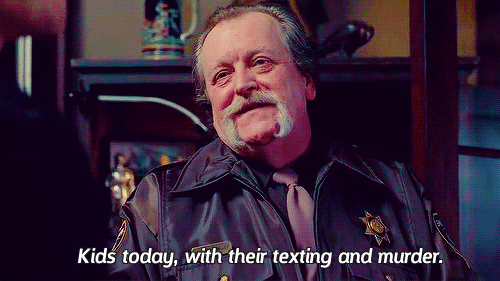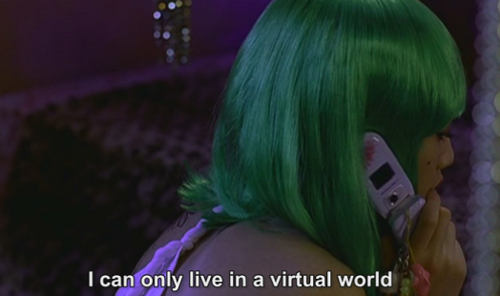 Over the past few months, a lot of theoretical work has been done to further develop the concept of “digital dualism.” Following a provocation from Nicholas Carr, a number of thoughtful people have chimed in to help both further explicate and defend the theory. Their responses have been enlightening and are worth reading in full. They have also clarified a few things for me about the topic that I’d like to share here. Specifically, I’d like to do a bit of reframing regarding the nature of digital dualism, drawing upon this post by Nathan Jurgenson, then use this framework to situate digital dualism within a broader field of political disagreement and struggle.
Over the past few months, a lot of theoretical work has been done to further develop the concept of “digital dualism.” Following a provocation from Nicholas Carr, a number of thoughtful people have chimed in to help both further explicate and defend the theory. Their responses have been enlightening and are worth reading in full. They have also clarified a few things for me about the topic that I’d like to share here. Specifically, I’d like to do a bit of reframing regarding the nature of digital dualism, drawing upon this post by Nathan Jurgenson, then use this framework to situate digital dualism within a broader field of political disagreement and struggle.
In his reply to Carr, Jurgenson helpfully parses apart two distinct-but-related issues. (Technically he draws three distinctions, but I will only focus upon two here). First, Jurgenson identifies what he calls “ontological digital dualism theory,” a research project that he characterizes as focused upon that which exists. Such theory would seem to include all efforts that seek to explain (or call into question) the referents of commonly used terms such as “digital” or “virtual,” “physical” or “real.” In contrast to this ontological theory, he then identifies what might be called normative digital dualism theory—a branch of analysis concerned with the comparative value that is attributed to the categories established by one’s ontological position. Such theory would thus analyze the use of value-laden modifiers such as “real” or “authentic” in describing the “digital” or the “physical.”
I posit that digital dualism, in fact, draws from both the ontological and the normative analyses. Specifically the digital dualist:
- Establishes an ontological distinction that carves up the world into two mutually exclusive (and collectively exhaustive) categories—at least one of which is somehow bound up with digital technology (e.g., that which is “virtual” vs. that which is “real”.)
- Posits some normative criteria that privileges one category over the other. (In most cases, it is the non-technological category that is deemed morally superior. However, charges of digital dualism would equally apply to views that favored the technological.)
Often the normative ranking of Step 2 is built into the very names of the categories posited in Step 1, as Stéphane Vial has previously argued. For example, the commonly-deployed term “real” suggests that what goes on in the opposing “virtual” realm is somehow “fake”—a term with strong negative connotations. Other times the dualist will rely upon additional description to suggest the inferiority of the technological. But regardless of how this normative evaluation is communicated, the basic claim of the digital dualist is (usually) the same: The activities and modes of existence falling within the technological category are morally inferior to their non-technological counterparts.
***
This two-component view of digital dualism, whereby a normative hierarchy is superimposed onto (or, perhaps, built into) an ontological distinction, makes it possible to locate it within a broader constellation of conservative thought. Specifically, I will try to show that digital dualism’s two steps are built into a variety of conservative views—a recurrence that I argue is not a coincidence but a testament to the inherent conservatism of the dualist’s two-step move. Then, I will use this observation to suggest that digital dualism, too, is a deeply conservative ideology.
First, though, it is necessary to clarify what exactly it would mean for a given view to be “conservative.” Such a view, I contend, is one that serves to either justify existing social hierarchies (and delegitimize efforts to subvert or undermine those hierarchies) or to establish new ones. In other words, it provides reason for privileging one group over the rest, typically by justifying—sometimes tacitly or obliquely—why one group should either power over its inferiors or a greater share of social goods.
Rather than defend the centrality of hierarchy to conservatism here, I’ll instead gesture towards the work of other theorists who have sought to expose how a taste for hierarchy is common to otherwise-diverse conservative thinkers and movements. Corey Robin, for instance, has devoted an entire book to the subject, arguing that the “capitalists, Christians, and warriors” who comprise the conservative block are united in their “opposition to the liberation of men and women from the fetters of their superiors, particularly in the private sphere,” in the belief that an emancipated world would “lack the excellence of a world where the better man commands the worse.”1
Admittedly, including the positing of novel hierarchies within the scope of “conservatism” seems to push at the boundaries of the concept. However, the inclusion is both useful for political analysis—any critique of traditional hierarchies would likely apply to novel ones as well—and seems necessary for capturing conservative ideological defenses against new modes of existence (transphobia, for example, can be considered a reactionary defense of traditional ways of being built upon a newly-developed social hierarchy). Given this definition of conservatism, my central claim is that conservative ideologies tend to rest on the same two elements that define digital dualism—an ontological division that is then imbued with normative weight.
Consider a few suggestive examples.
In “The Aristocracy of Culture,” sociologist Pierre Bourdieu seeks to show how aesthetic and cultural preferences are deployed to establish hierarchy dividing the elites from the masses. He theorizes that cultural elites establish an ontological distinction between “pure taste” and “barbarous taste” to support the hierarchical notion of “a radical difference which seems to be inscribed in ‘persons’.”2 As an example, he quotes the philosopher Ortega y Gasset at length, noting in particular the latter’s assertions “that some possess an organ of understanding which others have been denied; that these are two distinct varieties of the human species,”3 and that:
The music of Stravinsky or the plays of Pirandello have the sociological power of obliging [the masses] to see themselves as they are, as the ‘common people’, a mere ingredient among others in the social structure, the inert material of the historical process, a secondary factor in the spiritual cosmos. By contrast, the young art helps the ‘best’ to know and recognize one another in the greyness of the multitude and to learn their mission, which is to be few in number and to have to fight against the multitude.4
Through these quotes, Bourdieu reveals how the ontological distinction between high and low art comes to be imbued with normative weight, with the enjoyment of the former coming to serve as an “affirmation of the superiority of those who can be satisfied with [high culture].”5 In this way, he concludes, “high” vs. “low” art is distinction predisposed “to fulfill a social function of legitimating social differences.”6
Nietzsche, too—at least by one reading—legitimates inequality via the normative weighting of ontological categories. In On the Genealogy of Morals, Nietzsche posits (and seemingly endorses) a “noble” normative framework that privileges the “noble ones, we good, beautiful, happy ones”7 over the low, the common, and the bad. To clarify this distinction, he reframes the divide as one between the “blond beast prowling about avidly in search of spoil”8 and “the ill-constituted, sickly, weary and exhausted people of which Europe is beginning to stink,”9 and again as “Rome against Judea,” and “higher man” versus the “‘tame man,’ the hopelessly mediocre and insipid man,”10 among others . Through such descriptions, Nietzsche seeks to establish a clear ontological caste system—a framework from which he might call into question egalitarian ethical principles and normative positions. For why would one structure society around the needs of the pathetic? In this respect, Nietzsche’s position seems to both qualify as deeply conservative while also clearly mirroring the two moves of the digital dualist.
Finally, white supremacism (among other forms of racial chauvinism) also seems to be characterized by an ontological insistence upon carving up the social world upon racial lines, a move that is then followed by a normative ranking of the groups. (Though white supremacists try to obfuscate this second move so as to make their ideology seem more palatable, such maneuvering doesn’t change the reality of their ideology).
***
In each of these cases, the same basic pattern of the two-step move reemerges. In a sense, this should be expected, as the normative ranking of Step 2 seems to be the only way to establish some sort of normative or justificatory underpinnings for affirming a conservative hierarchy. Yet to see this normative ranking embodied in actual conservative ideologies really clarifies the point, I think.
More importantly, these examples also make apparent the way in which digital dualism is also a conservative ideology. Though dualists tend to focus upon digital activities rather than people, it seems that such judgment inevitably expands so as to include those who engage in digital activities as well. If “virtual” friendships are shallower than “real” ones, what does that say about those who are drawn to the former? Indeed, just as the privileging of “high” over “low” art isn’t so much a judgment about the works themselves as it is their enthusiasts, digital dualism is a way of developing a new hierarchy to separate those with a taste for the “physical” and the “real” from the digitally-inclined masses. And, in this way, it becomes the latest manifestation of a long tradition of developing social schemas that caste a particular group as inferior for the benefit of the privileged group. And though digital dualism is certainly not as extreme or seemingly oppressive as Nietzscheanism or white supremacism, the difference appears to be one of degree rather than kind.
By thus locating digital dualism within a broader field of conservative ideologies, it becomes possible to both understand why the view strikes so many as problematic or even borderline-offensive. At least for those with egalitarian sensibilities, digital dualism could—and should—trigger the same alarm bells as Ortega y Gasset, Nietzsche, and David Duke, albeit at a lower volume.
Finally, recognizing the conservatism of digital dualism opens up new strategies for critique. For anti-dualists, in addition to formulating novel criticisms, might also bring to bear a broad array of egalitarian and anti-conservative thought and arguments to the issue at hand. Likewise, many of the arguments that have appeared on this blog might be usefully repurposed to aid in broader disputes between egalitarians and hierarchs. In this way, understanding digital dualism as a conservative ideology might serve to unify otherwise-diverse thinkers, bringing together and amplifying their theoretical work in the struggle against the ideologies of the right.
Jesse Elias Spafford enjoys reading the Internet and writing about power, politics, and pop culture. @jessespafford



















